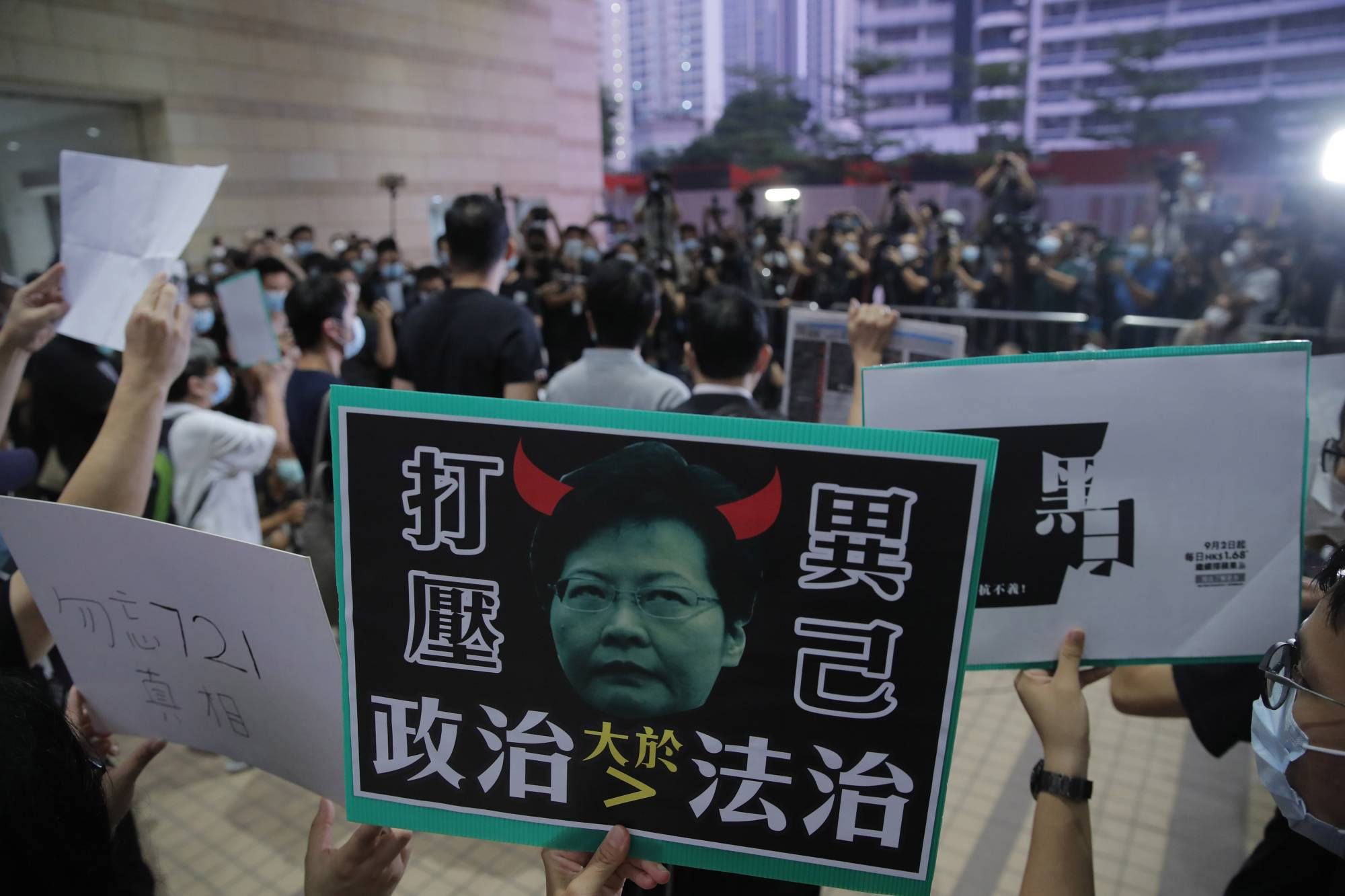The U.S. is deploying its economic weaponry as never before, using unilateral sanctions to punish China for the erosion of Hong Kong's autonomy and its treatment of Uighur minorities in the country's northwest. Western experience with Russia suggests Washington's efforts to force a change of behavior are unlikely to succeed, even if the measures remain in place for years.
Washington blacklisted a powerful Chinese conglomerate and officials over human rights abuses in Xinjiang at the end of July, just as President Donald Trump suggested he would ban popular Chinese-owned video app TikTok. In early August, weeks after Beijing imposed a national security law on Hong Kong, the White House took the most dramatic step of all, targeting the territory’s leader, Carrie Lam, and a handful of others. The Hong Kong Autonomy Act passed by the U.S. in July may expand that group, and target their bankers, too.
The U.S. sanctions machinery has generally been targeted at smaller, rogue states. Not always, though. Russia has been under progressively tougher measures since 2014, following the annexation of Crimea and the downing of a passenger aircraft over Ukraine. The Russian economy, before punitive action, was twice the size of all others under U.S. sanctions combined. Targeting the world’s second-largest economy represents another step up. Still, experience offers some hints of what can be expected.



















With your current subscription plan you can comment on stories. However, before writing your first comment, please create a display name in the Profile section of your subscriber account page.